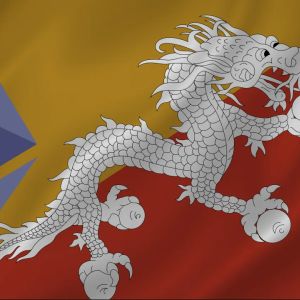The Kingdom of Bhutan is gradually migrating its National Digital Identity (NDI) platform to the Ethereum blockchain, marking a landmark step in the digital transformation agenda for this Himalayan nation. The move makes Bhutan the first country to base its national identity system on a public blockchain, thereby enhancing transparency, trust, and citizen control over their personal information. The migration from NDI to Ethereum is at the core of Bhutan’s vision to create a decentralized, secure, and self-sovereign digital community. This integration will enable the NDI to generate verifiable credentials, sign digital documents, and prove identity natively on Ethereum’s public, distributed network. By building its core identity system on Ethereum, Bhutan aims to reduce its reliance on centralized databases, a common vulnerability to hacking, manipulation, and data leakage. This philosophy for the nation is in sync with India’s “technology with values” philosophy, which encourages integrity and ethics, inclusion, and empowerment through innovation. The launch of Bhutan’s National Digital Identity on Ethereum marks a significant milestone in establishing the country as a leader in the realm of digital government, according to Prime Minister Lyonchen Tshering Tobgay. He said that by utilizing Ethereum’s globally distributed and decentralized infrastructure, they aimed to enhance the security, transparency, and availability of Bhutan’s critical systems. He added that this milestone underscored their vision of creating an interoperable and user-owned identity system, one that connects Bhutan to global ecosystems while upholding His Majesty the King’s vision of a secure, inclusive, and digitally empowered society. Shortly after the 2023 election, Bhutan’s National Digital Identity (NDI) was established, the first and only national system worldwide to offer self-sovereign identity (SSI) at a population-wide scale. His Royal Highness also emerged as the country’s first digital citizen during the launch, highlighting Bhutan’s leadership in people-centered digital innovation. Bhutan gains global recognition through blockchain collaboration Aya Miyaguchi, the president of the Ethereum Foundation , praised Bhutan’s move as a way blockchain could be employed to create open and inclusive systems that work for citizens — and not just institutions. Vitalik Buterin, the co-founder of Ethereum, also praised the initiative, stating that decentralized digital identity is a fundamental building block for the future of the internet and that he is pleased to see innovative teams, such as uPort, developing self-sovereign solutions. He added that Bhutan’s adoption of an open architecture built on Ethereum demonstrated the purpose behind creating the platform — to drive meaningful and positive change through open-source technology. From the outset, Bhutan has sought to establish a transparent network that serves its citizens as well as those beyond its borders. Anchoring in a public blockchain enables the Government of Bhutan to allow its citizens to verify their credentials from anywhere in the world, while preserving privacy and control. This differs from many remote identification systems based on opaque, centralized infrastructure controlled by governments or the private sector. The government aims to migrate the entire NDI platform onto Ethereum by early 2026. When it’s fully rolled out, Bhutanese citizens will be able to prove certain things about themselves without disclosing their personal information, as cryptographic proofs are used instead of the usual ID checks. Driving innovation through blockchain Besides its national identity system, the country is studying more extensive uses of blockchain technology in various aspects of governance and social services. In 2025, the nation also hosted a decentralized applications (dApp) hackathon in Paro, with a partnership from the Ethereum Foundation. The event was attended by over 70 developers who worked on creating digital tools based on Bhutan’s identity framework. The projects included verifying land records, implementing transparent citizen feedback systems, and tracking provenance for locally made products. Bhutan’s NiaoDai Interchain has also formed a global partnership with iDen2, a decentralized identity protocol, to jointly develop Phenix—a modular identity solution for use worldwide. The partnership will aim to combine Bhutan’s real-world experience in deploying a national digital identity with the iDen2 open-source technology, enabling other countries and organizations to replicate Bhutan’s success. Want your project in front of crypto’s top minds? Feature it in our next industry report, where data meets impact.















